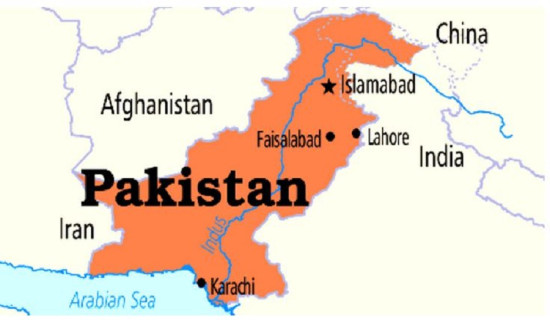- Tuesday, 3 February 2026
WHO experts debate whether pox is now a global health emergency
GENEVA, Aug 15 : The World Health Organization on Wednesday held a meeting of experts to decide whether the mpox surge in Africa should be declared a global public health emergency.
The gathering of 16 international figures comes after the African Union's health watchdog declared its own public health emergency over the growing outbreak.
Mpox has swept through the Democratic Republic of Congo, where the virus formerly called monkeypox was first discovered in humans in 1970, and spread to other countries.
WHO chief Tedros Adhanom Ghebreyesus said the more than 14,000 cases and 524 deaths reported so far this year in DR Congo has already exceeded last year's total.
"The emergence last year and rapid spread of clade 1b in DRC, which appears to be spreading mainly through sexual networks, and its detection in countries neighbouring DRC is especially concerning, and one of the main reasons for my decision to convene this emergency committee," he said in opening the meeting.
"In the past month, about 90 cases of clade 1b have been reported in four countries neighbouring the DRC that have not reported mpox before: Burundi, Kenya, Rwanda and Uganda.
"But we are not dealing with one outbreak of one clade: we are dealing with several outbreaks of different clades in different countries with different modes of transmission and different levels of risk," Tedros said.
PHEIC status
The committee will advise Tedros on whether the outbreak represents a public health emergency of international concern (PHEIC) -- the highest alarm the WHO can sound.
A PHEIC declaration then triggers emergency responses in countries worldwide under the legally binding International Health Regulations.
If declared, it would be the second PHEIC in succession on mpox -- albeit one focused on a different, and more deadly, strain of the virus.
In May 2022, mpox infections surged worldwide, mostly affecting gay and bisexual men, due to the Clade 2b subclade.
The WHO declare public health emergency which lasted from July 2022 to May 2023. The outbreak, which has now largely subsided, caused some 140 deaths out of around 90,000 cases.
The clade 1b subclade, which has been surging in the DRC since September 2023, causes more severe disease than clade 2b, with a higher fatality rate.
Mpox is an infectious disease caused by a virus transmitted to humans by infected animals but can also be passed from human to human through close physical contact.
The disease causes fever, muscular aches and large boil-like skin lesions.
Two vaccines for mpox are recommended by WHO immunisation experts.
A PHEIC has only been declared seven times since 2009: over H1N1 swine flu, poliovirus, Ebola, Zika virus, Ebola again, Covid-19 and mpox. (AFP)
















